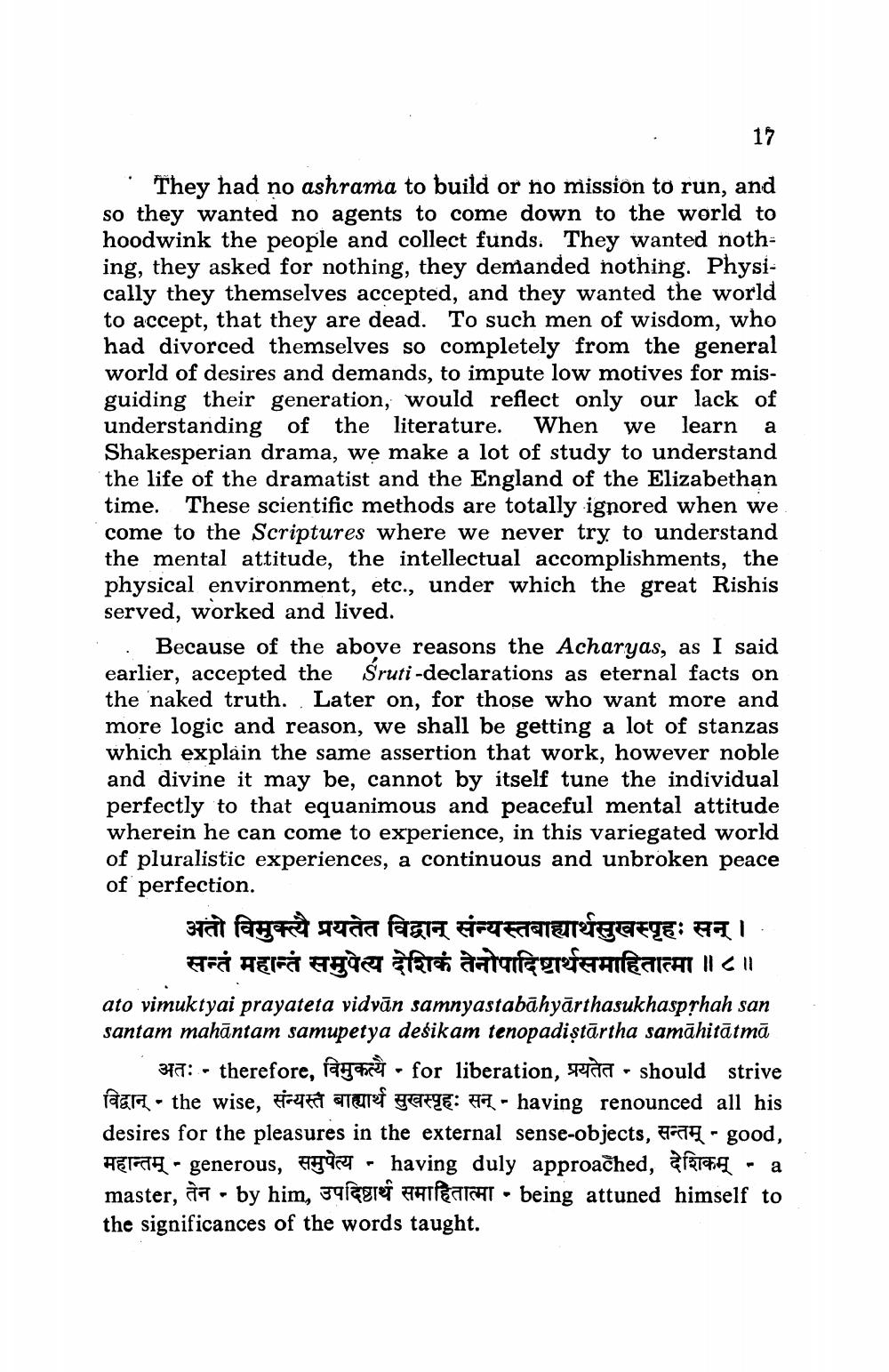________________
17
They had no ashrama to build or no mission to run, and so they wanted no agents to come down to the world to hoodwink the people and collect funds. They wanted nothing, they asked for nothing, they demanded nothing. Physically they themselves accepted, and they wanted the world to accept, that they are dead. To such men of wisdom, who had divorced themselves so completely from the general world of desires and demands, to impute low motives for misguiding their generation, would reflect only our lack of understanding of the literature. When we learn a Shakesperian drama, we make a lot of study to understand the life of the dramatist and the England of the Elizabethan time. These scientific methods are totally ignored when we come to the Scriptures where we never try to understand the mental attitude, the intellectual accomplishments, the physical environment, etc., under which the great Rishis served, worked and lived.
Because of the above reasons the Acharyas, as I said earlier, accepted the Śruti-declarations as eternal facts on
the naked truth. Later on, for those who want more and more logic and reason, we shall be getting a lot of stanzas which explain the same assertion that work, however noble and divine it may be, cannot by itself tune the individual perfectly to that equanimous and peaceful mental attitude wherein he can come to experience, in this variegated world of pluralistic experiences, a continuous and unbroken peace of perfection.
अतो विमुक्त्यै प्रयतेत विद्वान् संन्यस्तबाह्यार्थसुखस्पृहः सन् । सन्तं महान्तं समुपेत्य देशिकं तेनोपादिष्टार्थसमाहितात्मा ॥ ८ ॥
ato vimuktyai prayateta vidvān samnyastabāhyārthasukhaspṛhah san santam mahāntam samupetya desikam tenopadiṣtārtha samāhitātmā
अतः - therefore, विमुकत्यै - for liberation, प्रयतेत - should strive विद्वान् - the wise, संन्यस्त बाह्यार्थ सुखस्पृहः सन् - having renounced all his desires for the pleasures in the external sense-objects, - good, महान्तम् - generous, समुपेत्य - having duly approached, देशिकम् master, तेन - by him, उपदिष्ठार्थ समाहितात्मा - being attuned himself to the significances of the words taught.
P a




